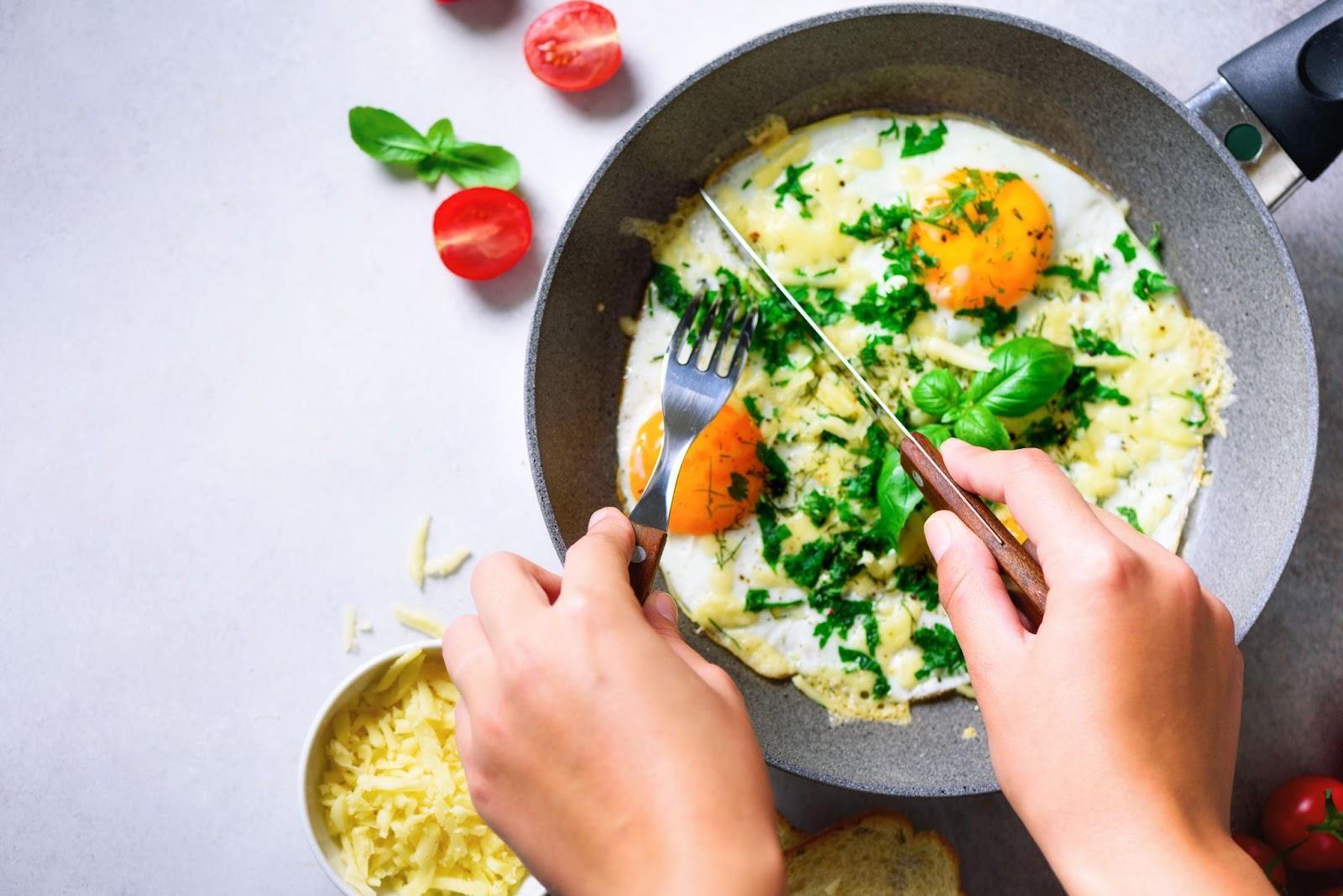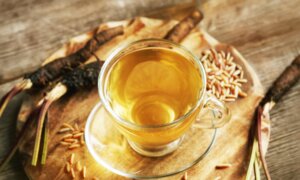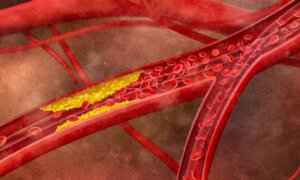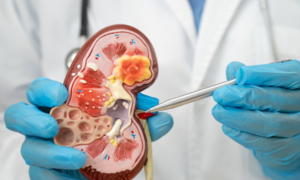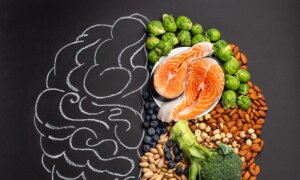The Many Benefits of Eggs
Studies have found that eggs are rich in all essential amino acids and are an important source of vitamins A and B and minerals such as iron, zinc, and calcium. Researchers believe eggs contain many untapped bioactive compounds that may significantly prevent and treat diseases.
Lutein
The lutein in eggs is easily absorbed and protects our eyes.
Rich in Selenium and Antioxidants
Eggs are rich in the trace element selenium. According to United States Department of Agriculture data, one egg contains approximately 15.6 micrograms of selenium, and eating four eggs a day meets the recommended intake of 55 micrograms. Selenium is a key component of antioxidant enzymes that help scavenge free radicals and reduce oxidative stress.
Nitric Oxide Synthesis and Cardiovascular System Protection
Amino acids such as arginine, found in eggs, can be converted into nitric oxide, an important neurotransmitter that helps dilate blood vessels, improve circulation, lower blood pressure, and potentially reduce the risk of cardiovascular disease.
Do Eggs Increase Cholesterol?
Because of the high cholesterol content in egg yolks, some people worry that eating eggs will cause a burden on the cardiovascular system. However, studies have found that the body does not easily absorb the cholesterol in eggs. There is no difference in effect on blood cholesterol level between eating eggs and eating vegetables.
Beneficial From the Inside Out
Wu said that every bit of an egg has medicinal worth and offers health care functionality from the inside out:
Eggshell for Calcium Supplementation
Eggshells are rich in calcium carbonate, which can help supplement calcium intake and may aid in relieving symptoms of hyperacidity. For people with osteoporosis or those needing extra calcium, here’s a simple method to convert the calcium in eggshells into a more absorbable form—calcium citrate:
Ingredients:
- 1–2 whole eggs (with clean, intact shells)
- A few tablespoons of water
- About 1 teaspoon of fresh lemon juice
Instructions:
- Wash eggs thoroughly to remove any dirt or bacteria from the shells.
- Place whole eggs (uncooked) in a small heatproof bowl.
- Add just enough water to partially submerge eggs (2–3 tablespoons), along with a few drops of lemon juice.
- Steam the bowl with the eggs, water, and lemon mixture for 10–15 minutes. The heat and acid from the lemon will help dissolve some of the calcium carbonate from the eggshells, forming calcium citrate—a form that is more easily absorbed by the body than calcium carbonate.
- Cool slightly.
You can then:
- Drink the lemony calcium-rich solution (avoid if you’re sensitive to acidity).
- Peel and eat the steamed eggs as a nutritious addition to your meal.
Egg Membrane for Respiratory Health
The thin, transparent membrane lining the inside of an eggshell helps protect against microbial invasion. In TCM, this egg membrane is believed to nourish the lungs and support respiratory health. It’s used in some remedies to help relieve asthma, chronic bronchitis, and persistent coughs.
- Eggshells from 2–4 eggs (ideally organic or pasture-raised)
- Water
- Optional: A few drops of fresh lemon juice or a slice of ginger for flavor
Instructions:
- Crack eggs carefully and use contents for cooking as usual.
- Gently peel thin inner membrane from inside of each shell. This may be easier if you let the empty eggshells dry for a few hours first.
- Rinse membranes under clean, running water to remove any residual egg white or shell dust.
- Place cleaned membranes in a small saucepan with 1–2 cups water.
- Bring to a boil, then reduce to a simmer. Let it simmer for 10–15 minutes to extract the beneficial compounds.
- Strain the liquid into a cup. Add a bit of lemon juice or a slice of ginger to improve the taste, if desired.
- Drink warm as a soothing tea. This can be taken once daily during periods of respiratory discomfort.
Note: While TCM uses this as a traditional remedy, always consult a health care provider before treating any medical condition.
Egg White: Protein Powerhouse With Healing Properties
Egg whites are rich in high-quality protein, which supports tissue repair, helps fight oxidative stress, and strengthens the immune system. They also contain natural antibacterial compounds such as lysozyme and avidin, contributing to their protective effects.
Egg Yolk: Brain Booster and Traditional Remedy
Egg yolks are the most nutrient-dense part of the egg, packed with lecithin, choline, vitamins A, D, E, and B12, and essential fatty acids. Lecithin and choline, in particular, are vital for brain development, nerve function, and memory formation. These nutrients are especially important for children to support brain growth and cognitive development and for older adults to help maintain brain health and possibly reduce the risk of Alzheimer’s disease.
- Calm the spirit and relieve agitation with sedative and soothing properties.
- Aid sleep, because of their nourishing and tranquilizing qualities (they are considered to “nourish yin” and “calm the shen,” which can help with insomnia or nervous tension).
- Treat epilepsy and spasms. The yolk is believed to help “anchor the yang” and stabilize neurological overactivity.
Some TCM texts mention that egg yolk has an anti-fetal effect. This may refer to its occasional use in formulas designed to stimulate menstruation or regulate abnormal pregnancy conditions, suggesting a mild emmenagogue effect (promotion of menstrual flow). However, this use is rare, and in most cases, egg yolk is considered safe and nourishing during pregnancy when eaten as part of a normal diet.
How to Nourish the 5 Internal Organs
TCM believes that the five internal organs of the body (liver, heart, spleen, lungs, and kidneys) correspond respectively to an energy system in the body and that each system has its favorite foods. When combined properly with foods that correspond to the different energy systems, eggs can nourish the five internal organs.
Organ-Specific Egg Therapy Dishes
1. Liver: The liver as an energy system includes the liver, autonomic nervous system, blood, and eyes.
A Few Nourishing Recipes
During the chilly autumn and winter months, the skin is prone to dryness, and respiratory infectious diseases are prevalent. TCM believes that nourishing the lungs helps protect the skin and prevent respiratory infections. Wu suggested eating apple and egg cups, seasonal vegetables, chicken, and baked eggs.
Apple and Egg Cup (Nourishes the Lungs)
Ingredients
- 1 apple
- 1 egg
Preparation
- Choose an apple with a flat bottom so it will stay upright. Cut a triangular opening at the top with a knife and keep the cut portion for use later.
- Cut out the core and scoop out part of the pulp with a small spoon to form a cup on the inside.
- Pour the egg white and yolk into the cup and cover with the original triangular top.
- Steam for 40 minutes and eat while hot.
Seasonal Vegetables, Potatoes, Chicken, and Eggs (Nourishes the Lungs)
Ingredients
- 1 medium-sized potato
- 4 small tomatoes
- 3.5 ounces chicken leg meat
- 2 slices Chinese cabbage (or any green vegetables)
- 3 eggs
- A few black olives
- 1 tablespoon Parmesan cheese powder
Preparation
- Cut all the above ingredients into small pieces and set aside.
- Add 2 tablespoons of oil to a pan, add the ingredients except for the Parmesan, and stir-fry until cooked.
- Add 1 to 2 tablespoons of oil, add the egg fluid, turn to medium heat, stir evenly until half cooked, and bake slowly over low heat.
- Sprinkle with half of the Parmesan cheese powder, cover, and simmer until the egg on top is cooked.
- Transfer from pan to a small plate, then invert onto a larger plate and sprinkle with remaining Parmesan cheese.
Winter is a good season for nourishing the kidneys, and Wu recommended two kidney-nurturing recipes.
Fried Eggs With Chives (Nourishes the Kidneys)
Ingredients
- 2 eggs
- 10 ounces of chives
- 3 tablespoons cooking oil
- 1 teaspoon sesame oil
- Salt
Preparation
- Beat eggs and set aside.
- Wash chives, drain dry, and chop them into pieces.
- Add three tablespoons of cooking oil to the pan. Heat it up, add eggs, and stir-fry over high heat until egg is semi-solidified.
- Add chopped chives, salt, and sesame oil, and stir-fry until the egg is completely cooked.
Note: Chives are hot in nature and tend to aggravate inflammation. People with otitis media, tonsillitis, gastritis, or high blood pressure should eat moderately.
Shrimp With Smooth Eggs (Nourishes the Kidneys)
Ingredients
- 20 shrimp
- 4 eggs
- 1/2 teaspoon cornstarch
- 1 teaspoon salt
- 1 teaspoon rice wine
- Oil
- Chopped green onion to taste
Preparation
- Mix 1/2 teaspoon of cornstarch and 1 tablespoon of water in a bowl and set aside.
- Marinate shrimp with rice wine.
- Beat four eggs into the cornstarch water, add salt, mix well, and set aside.
- Pour oil into a hot pan and fry the shrimp until cooked.
- Pour in egg mixture and stir evenly. Before the eggs are fully cooked, turn off heat and stir in chopped green onion.
Note: Patients with allergic asthma, gout, and hyperthyroidism should eat minimal shrimp.
Who Should Limit or Avoid Eggs?
People with end-stage liver disease or chronic kidney disease may need to limit their protein intake, including protein-rich foods such as eggs. In such cases, the body may struggle to properly process and eliminate the byproducts of protein metabolism, which can worsen their condition. Therefore, eggs should be minimized or eaten under medical supervision as part of a carefully controlled diet.

